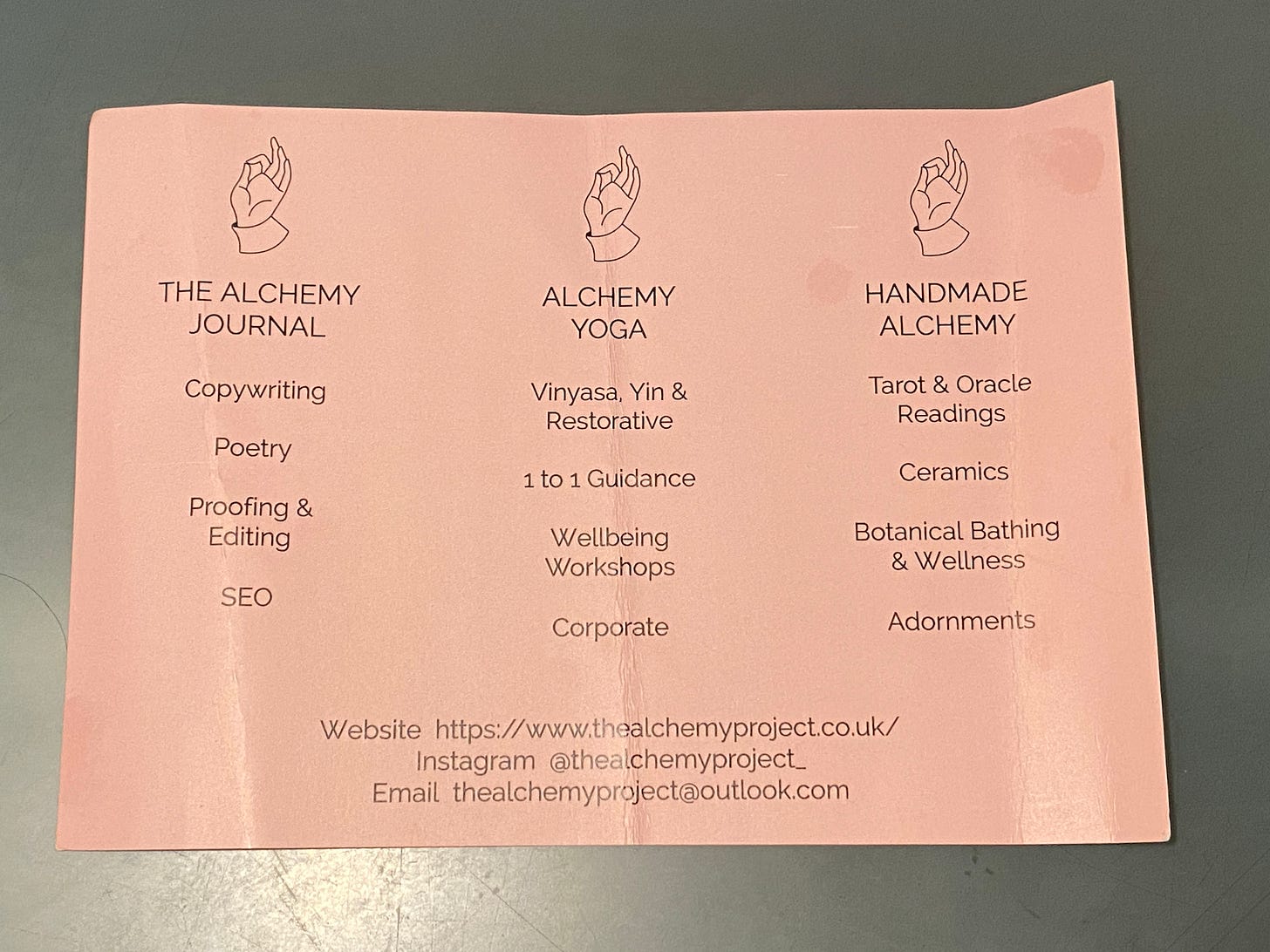Forget Pronouns, Tell Me Your Nouns
How important is it to be legible to others?
I was never very good at the technical side of English. Egalitarian educational ideals meant that humanities subjects weren't set by ability when I was at school, so we had to contend with the most disruptive students in class. Every time I hear the word ‘pronouns’ I am transported back to the chaos of my GCSE English lessons, where drugs were sold and the teachers bullied. I can do nouns, verbs, and adjectives but anything beyond that is a bit of a mystery. A pronoun is one of those words like caesura or diphthong that seems to exist in a linguistic realm abstracted from reality. I respect people's pronouns when I am told them, but don't connect them to the quiddity of the individual in front of me. Fortunately, I did learn about nouns at school and continue to find them fascinating.
What do I mean by nouns? These are the roles and activities that people put on their social media bios to make themselves legible to others. Although you can only have one set of pronouns, people will often put three or more nouns to represent who they are, what they do, and what they aspire to be.
Here are a few examples picked at random:
Artist, Writer, Yogi.
Father, patriot, news junky, drone pilot.
Philosophical Embroiderer & Self-trained Amateur Lawyer.
Black, Transman, writer, critic, thinker, contributor to NBC.
Mother of cats, tea-enthusiast, #FBPE.
Modernity obsessive. Cinéaste; phynance researcher; suburbs enjoyer.
Radically inauthentic green communist sex witch.
Web Design. Words. Photography. Dunbar’s Number Respecter.
Space is limited, so we only get a few nouns to describe ourselves. They can be funny, ironic, tribal, or factual — if you have the credentials, why not flaunt them? — all that really seems to matter is to provide some intrigue.
I am reminded of the story about the advice that billionaire Warren Buffett gave to his pilot about setting priorities. Buffett told the pilot to make an ordered list of the top 25 things he wanted in life: the top five are your priorities, he said, the remaining twenty should be avoided at all costs. If you want to achieve anything, you have to focus. I think about this whenever I add nouns to my bio. Who am I? What do I want to focus on?
For a long time, I just called myself a UX Designer and Frontend Developer. The word ‘UX’ was a bit weird to non-tech people so you could usually spark a conversation about what it meant without being pre-judged. I also liked the fact that it was an honest description of how I spent my days, which removed any sense of imposter syndrome. My nouns made me legible to the world, showing other professionals where I fit in. If I had been born 700 years ago, would they been incorporated into my surname? Neil Uxdesigner.
James C. Scott's Seeing Like A State describes the process by which the state, by trying to increase taxation and regular borders, imposed legibility on individuals. This was especially true with regard to names, which had previously been a lot more fluid. As Scott Alexander writes in his review:
"Peasants didn’t like permanent surnames. Their own system was quite reasonable for them: John the baker was John Baker, John the blacksmith was John Smith, John who lived under the hill was John Underhill, John who was really short was John Short. The same person might be John Smith and John Underhill in different contexts, where his status as a blacksmith or place of origin was more important. But the government insisted on giving everyone a single permanent name, unique for the village, and tracking who was in the same family as whom. Resistance was intense."
Is it good to be legible in our nouns or should we channel our creativity into being intriguing? And what about faking it until you make it? I consider myself an amateur photographer, I enjoy writing here, and I dream of being a filmmaker ... should these aspirational nouns be added to my list or do I need to have them validated by others? Let me know your thoughts below.
P.S.
I suspect designers fret over these things a lot more than normal people. Check out the difference between these two home pages, separated by a mere five years.



The morning I wrote this post, I saw this flyer in Locavore in Glasgow:
I couldn’t believe that one person could do everything from SEO to Oracle Readings. Surely, it was a big corporation. However, the woman behind the counter said: “Oh, yes, it is one person. She’s amazing!”









Excellent.
It got me thinking “tell me about your verbs” is also valuable and much overlooked these days. What are you doing? Is a good question for us. Not what do you think about or how do you see yourself but what are you actually making or destroying? And also not just “doing” in your leisure time, but in terms of daily life. Just a thought and it leads towards questioning the idea that we are “doing something” when we live for an identity. This is a bit like “don’t tell me what you think you are, tell me what you do”. Or as the old GSA motto said “by their work shall ye know them”. In art school it was – this expression – a way to sort out those who talked a good game from those who were actually good artists.
It's been very interesting seeing the responses to my Fruitmarket survey which asks "describe your identity" - some answer with their profession, some with protected characteristics, some with a fairly existential musing.